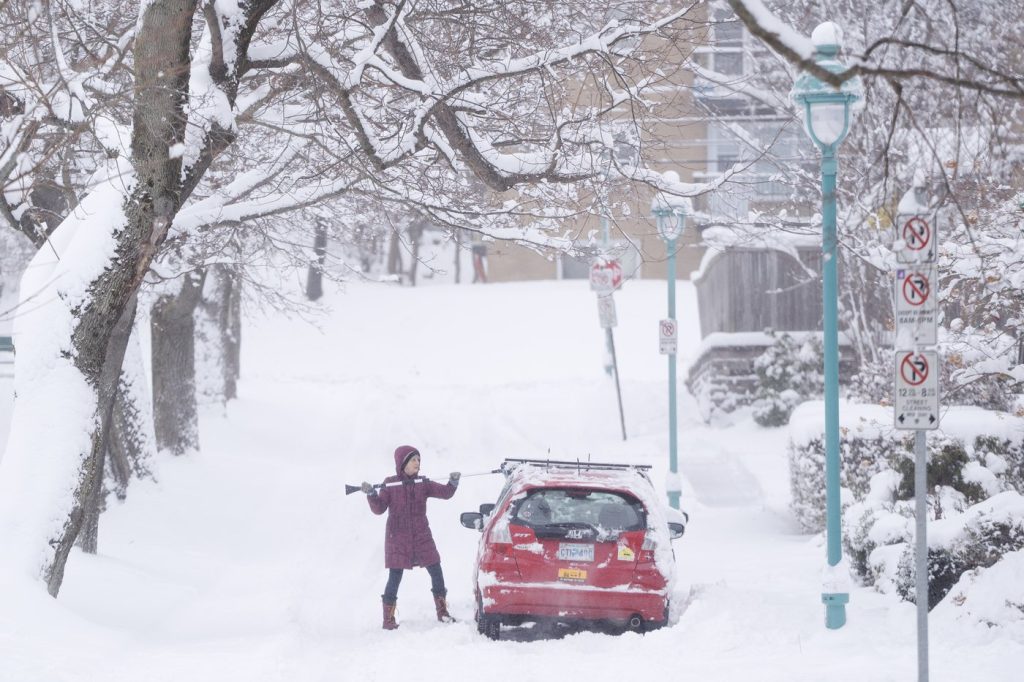Environment Canada forecasts mix of freezing rain and rain for parts of Maritimes

FREDERICTON — Some nasty weather is headed toward parts of the Maritimes over the next few days, bringing with it a mix of freezing rain, rain and snow.
Environment Canada said Fredericton could see freezing rain Sunday, followed by rain and a mix of rain and snow late on New Year’s Day.
Temperatures in the region could possibly climb to 8 C on Monday with the mercury dropping down to -6 C on New Year’s Eve night.
Advertisement
The forecast for Charlottetown includes periods of freezing drizzle for Sunday and then rain until the end of the year, with temperatures going up to 8 C.
Halifax is also expected to see periods of drizzle and rain through to New Year’s Day, with the mercury set to reach 8 C on New Year’s Eve.
Darin Borgel, a meteorologist for Environment Canada, said the entire northeastern areas are going to see “a bit of a warm up” for a few days.
But the temperatures are above normal for this time of year, he said.
The land mass is “quite cold” while the ocean is “still quite warm” and that contrast brings these changing weather and temperature patterns, he said.
Advertisement
“Our winters are normally very, very changeable like that. So we get from one extreme to the other in terms of warm up, cool down, warm up, cool down,” Borgel said.
“But (these temperatures) are higher than the normal climatological average.”
The European climate agency Copernicus said last month that for the second year in a row, Earth will almost certainly be the hottest it’s ever been. And for the first time, the globe this year reached more than 1.5 degrees Celsius of warming compared to the pre-industrial average.
The Maritimes — like the rest of Canada — are not immune from a warming climate, said Donald Wright, a University of New Brunswick professor of political science and a contributor to Yale Climate Connections at Yale University.
Although the science of attributing weather events to climate breakdown is getting better and better, it is still hard to attribute a single weather event such as freezing rain followed by rain and warmer temperatures in December, said Wright.
Advertisement
But it can be said with “absolute certainty” that long-term weather patterns in New Brunswick are changing due to global heating caused by the burning of fossil fuels and the accumulation of greenhouse gases in the atmosphere, he added.
“It ain’t rocket science,” Wright said.
“Changing weather patterns — including more rain events and fewer snow events in New Brunswick — is sometimes called global weirding. If the weather seems weird it’s because it is.”
This report by The Canadian Press was first published Dec. 28, 2024.
— With files from The Associated Press.
Advertisement
Hina Alam, The Canadian Press
